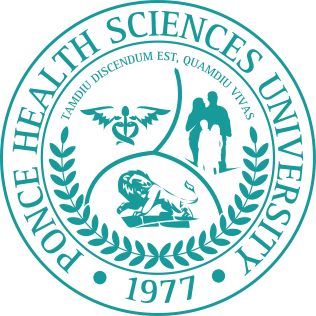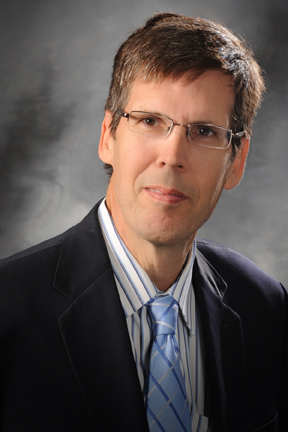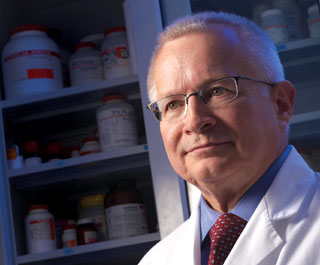
The Indiana University School of Medicine (IUSM) is a major, multi-campus medical school located throughout the U.S. state of Indiana and is the graduate medical school of Indiana University. There are nine campuses throughout the state; the principal research, educational, and medical center is located on the campus of Indiana University Indianapolis. With 1,461 MD students, 195 PhD students, and 1,442 residents and fellows in the 2023–24 academic year, IUSM is the largest medical school in the United States. The school offers many joint degree programs including an MD/PhD Medical Scientist Training Program. It has partnerships with Purdue University's Weldon School of Biomedical Engineering, other Indiana University system schools, and various in-state external institutions. It is the medical school with the largest number of graduates licensed in the United States per a 2018 Federation of State Medical Boards survey with 11,828 licensed physicians.

The Ponce Health Sciences University (PHSU), formerly Ponce School of Medicine & Health Sciences, is a private, for-profit university in Ponce, Puerto Rico and St. Louis, Missouri. It awards graduate degrees in Medicine (MD), Clinical Psychology (PsyD and PhD), Biomedical Sciences (PhD), Medical Sciences (MS), and Public Health (MPH and DrPH). The university has 360 students in its medical school and, as of 11 February 2019, was authorized to increase the student body at the medical school to 600 which, when fully in place, will make it the largest private medical school in Puerto Rico and one of the largest under the American flag.

Moffitt Cancer Center & Research Institute is a nonprofit cancer treatment and research center located in Tampa, Florida. Established in 1981 by the Florida Legislature, the hospital opened in October 1986 on the University of South Florida's campus. Moffitt is one of two National Cancer Institute-designated Comprehensive Cancer Centers based in Florida. In 2021, U.S. News & World Report ranked Moffitt Cancer Center as a top 30 cancer hospital in the United States.

University of South Florida Morsani College of Medicine is one of the graduate schools of the University of South Florida.
Bruce C. Kone is an American professor, nephrologist and molecular biologist. He is also a World Aquatics Masters Swimming world record holder, United States Masters Swimming (USMS) national record holder, twenty-three-time USMS national champion, and nine-time FINA Masters world's top-ranked age group swimmer. He is currently a tenured professor of medicine at the McGovern Medical School (UTHealth).

John Gordon McVie was an international authority on the treatment and research of cancer. He wrote over 350 peer-reviewed articles, editorials and books. McVie was born in Glasgow, Scotland and died of non-Hodgkin lymphona and COVID-19 in Bristol, England.
Joe G. N. "Skip" Garcia is an American pulmonary scientist, physician and academician.
Professor David James Kerr CBE is a British Cancer Researcher. His primary area of research is treatment and management of colorectal cancer.
Raymond L. Woosley is an American pharmacologist who is the founding president and chairman of the board for AZCERT, a not-for-profit organization dedicated to improved outcomes from the use of medications. Prior to leading AZCERT, he was founder and President of Critical Path Institute (C-Path). C-Path is an independent, non-profit organization created by the U.S. Food and Drug Administration (FDA) and the University of Arizona to help launch the critical path initiative. Previously, he has served as Vice-President for Health Sciences and Dean of the College of Medicine at the University of Arizona. He is Professor of Medicine and Biomedical Informatics in the University of Arizona College of Medicine - Phoenix, Arizona.

Timothy Joseph Yeatman, M.D. F.A.C.S. is currently the Associate Center Director for Translational Research and Innovation for the Tampa General Hospital Cancer Institute and Professor of Surgery at the University of South Florida, United States. He previously served as the Executive Medical Director of Oncologic Services and the Senior Medical Director for the Oncology Clinical Program at Intermountain Healthcare, serving 23 hospitals and >6000 patients across the State of Utah and beyond. He was also Professor of Surgery at the University of Utah and a Member of the Huntsman Cancer Institute's Cellular Response and Regulation Program. Dr Yeatman was also the Director of Gibbs Cancer Center and President of Gibbs Cancer Center & Research Institute in Spartanburg, South Carolina where he founded the Guardian Research Network, a novel approach to clinical data analytics, leveraging the entire EHR for real time database queries for identifying clinical trial candidates. Yeatman held numerous positions at the Moffitt Cancer Center (MCC) in Florida over a 20 year span from 1992 - 2012. Yeatman served as the Associate Center Director for Clinical Investigations, the Associate Center Director for Translational Research, the Executive Vice President for Translational Research, Professor of Surgery and Cncologic Sciences, and the GI Tumor Program Leader at the Moffitt Cancer Center and the University of South Florida. There he led a $100m Moffitt:Merck collaboration and co-founded a novel biotech company, M2Gen. He also served as Chief Scientific Officer for the Center for Advancement of Science in Space (CASIS), a non-profit organization appointed by Congress and funded by NASA to oversee all scientific use of the International Space Station. He has been funded by the National Cancer Institute (NCI) since 1993 and continues to perform basic and translational colorectal cancer research in genomics and biomarker development.

Thomas E. Hutson is an American medical oncologist and cancer researcher based in Dallas, Texas. He is the director of Genitourinary Oncology Program and co-director of the Urologic Cancer Research and Treatment Center at Baylor University Medical Center. He is a Professor of Medicine at the Texas A&M Health Science Center College of Medicine and serves as a chair of Genitourinary Research for US Oncology and McKesson.
Nancy E. Davidson is the executive director and president of Seattle Cancer Care Alliance, senior vice president, director of clinical oncology at Fred Hutchinson Cancer Research Center and head of the Division of Medical Oncology at the University of Washington School of Medicine. She focuses her research on breast cancer treatments and the genes that are mutated in various forms of breast cancer. She was president of American Association for Cancer Research from 2015 to 2016 and president of American Society of Clinical Oncology from 2007 to 2008.
Carlos L. Arteaga, M.D., was appointed Director of the Harold C. Simmons Comprehensive Cancer Center and Associate Dean of Oncology Programs at UT Southwestern Medical Center in Dallas in September 2017. Previously, he was the Associate Director for Clinical Research, director of the Center for Cancer Targeted Therapies, and professor of Cancer Biology and Medicine at Vanderbilt-Ingram Cancer Center. In 2014–2015, he was the president of the American Association for Cancer Research.
Scott M. Lippman is the former Director of Moores Cancer Center at the University of California, San Diego and current Professor of Medicine at UC San Diego School of Medicine.

Daniel D. Von Hoff is the physician in chief and director of translational research at Translational Genomics Research Institute (TGen), and current Virginia G. Piper Distinguished Chair for Innovative Cancer Research at HonorHealth Clinical Research Institute. He is also a professor of medicine at the Mayo Clinic and medical director of research as well as chief scientific officer at US Oncology. He is most notable for his work in targeted therapies for the treatment of cancer. He led the development of gemcitabine, and has several drugs in development.
Joseph Rocco Bertino was an American researcher in the cancer pharmacology program at Rutgers Cancer Institute of New Jersey and professor of medicine and pharmacology at the Robert Wood Johnson Medical School in New Jersey. His research focused on the treatment of lymphoma.

David R. Gius is an American physician-scientist the Zell Family Scholar Professor, Women's Cancer Research Program director, and Vice Chair of Translational Research at Northwestern University's Feinberg School of Medicine Department of Radiation Oncology and Pharmacology. His research focuses into the mechanistic connection between aging, cellular and/or mitochondrial metabolism, and carcinogenesis focusing on the Sirtuin gene family.
Howard L. McLeod is an American pharmacogeneticist and implementation scientist specialized in precision medicine.

Chi Van Dang is a hematological oncologist and researcher, currently serving as the Scientific Director of Ludwig Institute for Cancer Research. He is known for his research on genetics, the MYC gene and the cellular energy metabolism of cancer.
Jill M. Kolesar is an American pharmacist, cancer researcher, and professor, currently serving as the dean and Jean M. Schmidt Chair in Drug Discovery at the University of Iowa College of Pharmacy. She specializes in precision oncology, drug development, and molecular pharmacology, with contributions to cancer therapy, particularly for rural and underserved populations.










